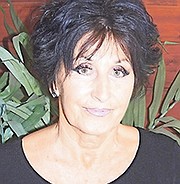By VICTORIA SARNE
Addictions or habits - we all have them to a greater or lesser degree. Whether we control them, or let them run and perhaps eventually ruin our lives, depends solely on us. We are all well aware of the obvious ones, some of which are seriously harmful to our well-being and frequently to that of others: for example, food, drink, drugs, smoking, gambling and sex.
Any of these can be over-indulged so that they affect our physical, emotional and mental health and have the potential to affect family, friends and sometimes strangers. We are familiar with the prevalence of obesity in almost all countries in the world these days and the ensuing issues of heart disease, cancer and diabetes to name only a few; similarly with drinking which affects not only significant organs such as liver, spleen and kidneys for a start but pickles our brains eventually and can make us belligerent, combative or dulls our cognitive capabilities. Smoking is scientifically linked to a whole slew of potential diseases; aside from the obvious ones of cancer, and heart disease it causes damage to teeth, eyesight, hearing and skin. Drug use whether prescription or illicit depending on which ‘poison’ it is, affects every part of the human body and psyche. All of these can have a potentially fatal outcome but long before that, over-use will have affected our enjoyment of life, possibly our finances or our work and home life because we become different under those influences. Addictive sex and gambling while seeming to have a diminished physical risk, do have deleterious mental and emotional side effects impacting not only the person indulging but husbands, wives or significant others.
Even persistently gossiping or putting down friends or neighbours can morph into an addiction when we feel compelled to talk about another’s misfortune or simply fabricate stories.
The question is ‘why’. Why do some of us feel the need to comfort ourselves with any of these habits even when we know that we shouldn’t? The answer is that whichever ‘poison’ you choose it offers a temporary ‘escape’ and fills a need of some kind whether you can verbally identify it or not: most commonly it is to cover an anxiety; to prop up our self-esteem or lack of; loneliness; sadness; depression; grief; or to conquer an anticipated fear and to feel good if only for a very short span of time before the effect wears off and the pressures return, compelling us to start the cycle again, looking for that fix.
That word more usually associated with drug taking, is really true of any of those other habits taken to the extreme when they are then identified as an addiction, mentally if not physically. We can become addicted to ice cream, chocolate, too many cups of coffee - perhaps these can be labelled as self-indulgent when not over-used but we would still have to question whether what we are doing is simply an occasional pleasure which we can control at will, or if it has taken on a life of its own and become a necessary prop in our minds just to get through the day or a specific situation. Before we can take steps to overcome and abandon these practices, we have to be able to identify what triggered us to start in the first place; that’s the million dollar question. Next comes the hard, hard, part: abandoning whichever poison of choice is controlling us. Nobody can talk us into this whether supportively or by shaming us. We are the only ones who can make the decision to take back control; first by identifying what we are really feeling or believe and being able to take ownership; secondly by understanding clearly the negative impact of our behaviour on others and the pain and anxiety we may have caused.
Even if we haven’t gone too far down the slippery path, ultimately self-destruction lies at the end of it and we need to recognise that. It takes guts and a sustained commitment to getting healthy and while it may seem I am perhaps over-stating the case with the words I have chosen to use, I am not. A dependency on any artificial substance or negative habit is destructive. Self-awareness is key to resolving these issues and there are resources in every shape and form to support and help recovery. No matter on what pretty plate or packaging it comes, no matter how we con ourselves into believing it’s ‘just this once’. It almost never is but we always have the power to change the story - focus on using your energies wisely and live a fully engaged life - happiness lies in that direction.
• Victoria Sarne is an entrepreneur and writer. She headed a team to establish a shelter for abused women and children in Canada and was its first chairwoman. You can reach her at victoria.conversations@gmail.com, visit lifelineswritingservice.com, or call 467-1178.





Comments
Use the comment form below to begin a discussion about this content.
Sign in to comment
Or login with:
OpenID